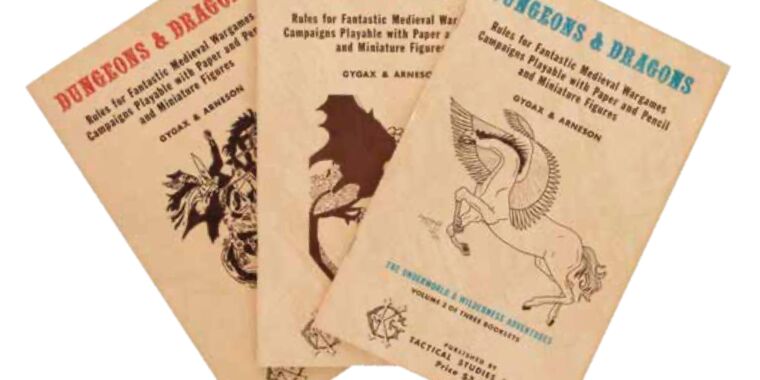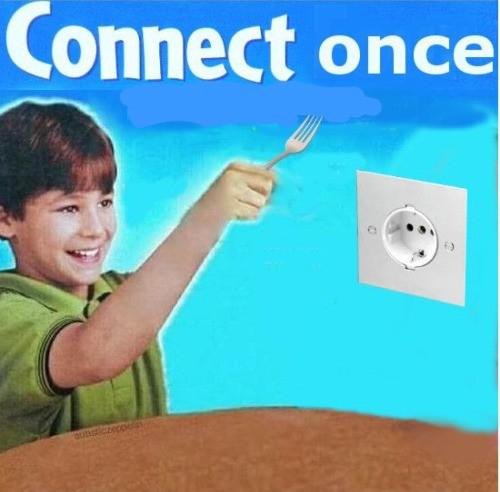To heck with WotC! Play Shadow of the Demon Lord/Weird Wizard
WOTC is an evil company that is trying to milk D&D fans for all of their money as they tank their product quality. Highly recommend people who want to play D&D explore one of the several other fantasy rpg systems that are out there.
I cannot stress this enough. They are owned by Hasbro. Last year was a massive win for both Dnd and Magic the Gathering yet they still layed off thousands of the people that made this possible. Even Sven Wincke of Larian who developed Baldur’s Gate 3 said he couldn’t even properly thank the DnD people he worked with because they were gone short after release. BG3 is probably the best game of the decade if not more and MTG is more popular than ever yet the people making them still get fired. Meanwhile, Hasbro and WOTC CEO’s personally made millions in salary and bonuses.
So no, you are not supporting workers and artists by buying their products. You are proving them right.
Always been a much bigger fan of Steve Jackson Games and GURPS
GURPS people always recommend it but never explain why. What’s actually good about it compared to something like Pathfinder 2e? It seems to me it would be really hard to find players. With Pathfinder I can at least tell my players it shares a legacy with D&D so they were receptive to switching systems.
Is there anything GURPS does particularly well over other systems? I know hardly anything about it. With PF2e there are a few easy-to-rattle-off features that drew me to it like the three action economy and better tools for game balancing as a GM.
GURPS has two letters that I think are the best: Generic and Universal. You can run anything in it and switch it up as much as you want. You could run campaigns similar to any of Star Trek, Star Wars, Stargate, Sliders, Brisco County Jr, Walking Dead, Harry Potter, etc., and have the ability to do crossover episodes.
I can see how that would be a selling point for a lot of groups, but most D&D-style rpg players I’ve played with don’t really think about RPGs as a way of playing in cinematic universes that aren’t relatively generic fantasy. Even my slightly steampunk-ish 1800s-style homebrew setting that I used for D&D and now use for PF2e often throws my players for a loop.
Ok, then it’s not for you and you don’t really have to make a counter point.
Yeah I just always wondered what the draw was. Is it really just that it doesn’t have a set genre? Because that honestly seems like a relatively small list of killer features compared to being able to say that “it’s really well balanced” or “combat feels really fun” or something like that. It’s not as though it’s hard to reflavour the mechanics of a D&D-style rpg to fit different kinds of fiction if you really want to. I’ve seen people use 5e as the backbone for lots of different kinds of genres. And like I said, Pathfinder will soon have Starfinder integrated so that will make things easier too.
I don’t know anything about Pathfinder but compared to even the TSR days of D&D, the culture is so much better around SJG, and it really shows in the quality and depth of the source books. They are absolutely amazing. The CIA confiscated early drafts of the Cyberpunk source book along with all their computer equipment, insisting, “This is real!” I learned so much as a kid about world religion from their primary Fantasy setting source book. The rules are very simple and elegant, exploiting the naturally occurring normal distribution provided by 3d6, which maps very well to the normal distribution of real life events and makes the plusses and minuses (or “adds” if you remember Tunnels and Trolls) a lot more meaningful, realistic, and interesting because +/-1 means something completely different in different situations.
What I appreciated most was the depth of character creation, while staying incredibly light weight. D&D always seemed like a video game where your character is nothing more than a class, some equipment and some basic stats, like it’s specifically designed to produce dungeon grinds, and if you want to do anything else, that’s up to the DM to figure out and mix in, but it’s optional. With GURPS, you’re designing an actual character in the literary sense, who has stories to explore and interests that necessarily interact with other character’s interests. It’s an actual role playing game.
Plus, SJG is a genuinely awesome company full of people who are really dedicated to the love of gaming. You don’t feel like you’re being exploited by fashion and capital. You feel like you’re collaborating with your friends.
Yeah I’d say that’s true of Paizo as well. Does GURPS release all of the game content under an open license like Paizo does?
If this report is correct, then it can only mean that I am … old?
This is the best summary I could come up with:
With this letter, written by Gary Gygax to wargaming zine publisher Jim Lurvey, one of the founders of what would become TSR announced that a January 1974 release for Dungeons & Dragons was forthcoming.
You could argue whether a final draft, printing, announcement, sale, or first session counts as the true “birth” of D&D, but we have to go with something, and Peterson’s reasoning seems fairly sound.
Books like Xanathar’s Guide to Everything and Tasha’s Cauldron of Everything will be codified and unified by a new sourcebook at some point, but all of it will be compatible with 5th Edition material.
And there’s a 500-plus-page non-fiction book, The Making of Original Dungeons & Dragons: 1970-1976, with research help from the aforementioned Peterson, containing never-before-seen correspondence between co-creators Gygax and Dave Arneson.
My cousin and I spent large parts of one summer attempting to play Marvel Super Heroes without understanding its D&D roots (or that it would always be a bit awkward with just two people).
And, of course, every video game, comic, novel, and other media I consumed that made a point of explaining how different classes worked, or the theory behind spells, owed something to D&D—by way of J.R.R.
The original article contains 515 words, the summary contains 197 words. Saved 62%. I’m a bot and I’m open source!





